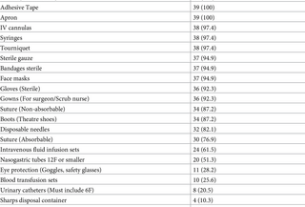In recent decades, U.S. global health initiatives—especially those targeting AIDS and malaria—have been instrumental in saving over 35 million lives worldwide. These programs, administered by the U.S. Agency for International Development (USAID), have not only addressed public health challenges but have also contributed to strengthening global security. However, the suspension of USAID funding has put this vital progress at risk, threatening not only health gains but also livelihoods and economic stability in affected regions.
A Legacy of Saving Lives
The U.S. has long been a leader in international health, channeling resources to combat some of the most pressing infectious diseases. Through initiatives focused on HIV/AIDS, malaria, and other global health crises, the United States has provided critical medical aid, research, and support for health infrastructure. The most notable achievements include a dramatic reduction in malaria deaths and a substantial decline in the spread of HIV in countries where these diseases once wreaked havoc. The 35 million lives saved, documented in a report by the Center for Strategic and International Studies (CSIS), is a testament to the enduring power of these programs.
Beyond Health: The Economic and Social Impact
However, the benefits of these programs extend far beyond health outcomes. With funding now uncertain due to the suspension of key USAID programs, the ripple effects are becoming more evident. Thousands of jobs directly linked to the implementation of these health initiatives could be lost. These include positions in healthcare, education, research, and public health advocacy across affected regions. For families whose livelihoods depend on these programs, the suspension means a loss of income and job security, amplifying the social and economic challenges in communities already dealing with poverty and health crises.
Moreover, these programs are an integral part of fostering stable, sustainable development in the regions they serve. With the potential dismantling of USAID programs, not only do we risk reversing years of progress, but we also jeopardize the long-term goal of building resilient healthcare systems worldwide.
The Risk of Losing Momentum
The halt in USAID’s global health funding threatens to unravel years of progress in combating infectious diseases. If these vital programs are not restarted, the consequences will be severe—millions of lives lost, outbreaks of preventable diseases, and the erosion of trust in international aid efforts. As the U.S. contemplates its role in global health moving forward, it must recognize the broader implications of suspending funding to such crucial initiatives.
The impact of these programs reaches far beyond statistics—it affects lives, communities, and entire nations. Restoring USAID’s global health efforts is not only an investment in global security but also a reaffirmation of the U.S. commitment to improving the well-being of people across the world. The stakes have never been higher.
Conclusion: A Call for Reinstating Global Health Support
As we face a pivotal moment in the history of international health, the question remains: Will the U.S. continue to lead the way in saving lives, or will the suspension of these life-saving programs set us back? The evidence is clear: the impact of U.S. health initiatives cannot be underestimated. To halt this momentum is to risk decades of progress and the lives of millions.
Sources:
- “Trump’s USAID Purge and Foreign Aid Turmoil Spark Global Security Concerns” by Noam Unger, Center for Strategic and International Studies (CSIS).



